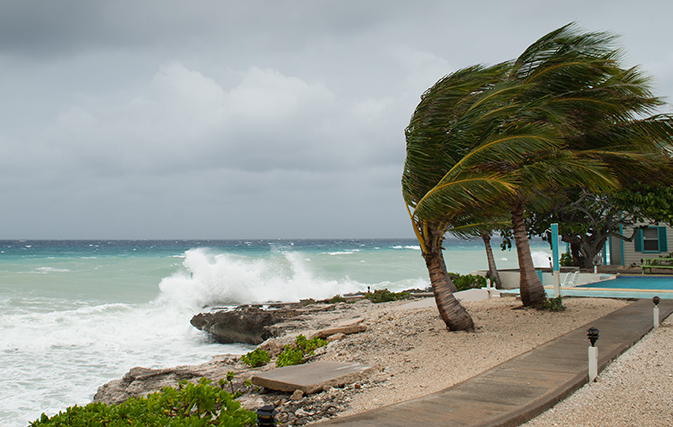SAN JUAN, Puerto Rico (AP) – A hurricane watch was issued for St. Lucia as Tropical Storm Bret barreled toward the eastern Caribbean on Thursday at near-hurricane strength.
The storm was located about 170 miles (265 kilometers) east of Barbados on Thursday morning and was moving west at 15 mph (24 kph). It had maximum sustained winds of 70 mph (110 kph), just below the 74 mph (119 kph) winds of a Category 1 hurricane.
Airports, businesses, schools and offices were closing in St. Lucia and Dominica as forecasters warned of torrential downpours, landslides and flooding.
“Protect your lives, property and livelihoods,” urged St. Lucia Prime Minister Philip Pierre.
Residents across the island filled up their cars with gasoline and stocked up on water and canned food, hoping the storm wouldn’t cause too much damage.
“You always have to be ready,” Ben Marcellin, who manages a guesthouse, said in a phone interview. “You never know. It can become serious.”
A tropical storm warning was in effect for Dominica, St. Lucia and Martinique, while a tropical storm watch was issued for Barbados and St. Vincent and the Grenadines. The stormwas expected to start affecting islands in the eastern Caribbean late Thursday, according to the National Hurricane Center in Miami.
Andre Joyeux, director of St. Lucia’s Meteorological Services, said Bret is expected to cut directly through the island.
“So we are hoping that persons take heed,” he said.
Up to 10 inches (3 centimeters) of rain forecast for the French Caribbean island of Guadeloupe south to St. Vincent and the Grenadines, including Barbados, the hurricane center said. Waves of up to 13 feet (4 meters) also were forecast for Guadeloupe, according to local meteorologists.
Bret is expected to lose strength once it enters the eastern Caribbean Sea and is forecast to dissipate by Saturday.
The Caribbean is also closely watching a tropical depression that is trailing Bret and has a 90% chance of formation. Early forecasts expect it to become Tropical Storm Cindy on Thursday and take a path northeast of the Caribbean through open waters.
If the depression strengthens into a storm, it would be the first time since record keeping began that two storms form in the tropical Atlantic in June, according to meteorologist Philip Klotzbach at Colorado State University.
The National Oceanic and Atmospheric Administration has forecast 12 to 17 named storms for this year’s hurricane season. It said between five and nine of those storms could become hurricanes, including up to four major hurricanes of Category 3 or higher.

